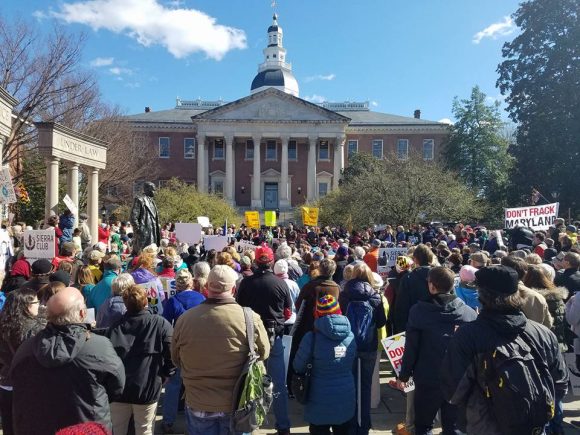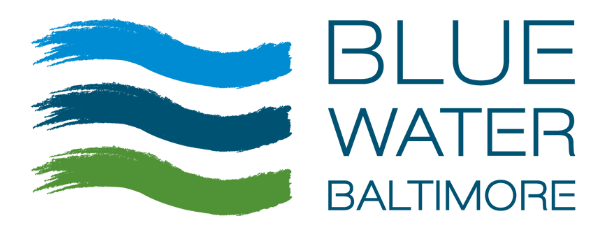Maryland General Assembly Session of 2017
The 2017 Maryland General Assembly session has come to a close. Throughout, Blue Water Baltimore was on the ground in Annapolis, collaborating with fellow environmental advocates ensuring our local waterways and the Chesapeake Bay are protected. This session brought a strong showing of bi-partisan support and a commitment to protecting Maryland’s citizens from the health impacts of pollution and we are grateful to our own local elected champions for their dedication to creating a healthy urban environment in Baltimore. In Maryland, we saw victories in banning fracking, expanding renewable energy, and protecting our bees. A special thank you to our network of dedicated advocates like you for supporting our calls to action and putting your trust in us. We couldn’t do it without you! Below is a brief summary on some of the bills we worked on.

Hydraulic Fracturing Prohibition (HB1325): Maryland became the first state with gas deposits to enact a legislative ban on hydraulic fracturing, or “fracking.” This is a huge win for the environment and our progress to a renewable energy future.
Expanded Polystyrene Phase-Out (SB186/HB229): Blue Water Baltimore strongly supported the passage of a statewide expanded polystyrene foam (Styrofoam) phase-out this session to eliminate the use of foam to-go packaging. Foam is one of the most common forms of litter we see in our waterways and is pervasively used at our local retailers. While we are disappointed the General Assembly did not pass SB186/HB229, we are optimistic regarding the most likely outcome of a summer study evaluating overall plastic to-go packaging pollution. This study has the potential to demonstrate more comprehensive environmental and public health impacts regarding the overuse of plastic and will result in stronger legislation for next year. Further, there has been momentum at the local government level on expanded polystyrene food packaging with Prince George’s and Montgomery counties already passing legislation phasing out its use. We’d be encouraged to see Baltimore do the same.
Task Force on the Forest Conservation Act (SB365/HB599): The current Forest Conservation Act (FCA) states ¼ of an acre must be replanted for every acre of forest cleared. This bill was intended to create a task force to reexamine the state-wide replanting goals with interest to increase the regulation to a 1 to 1 ratio. The bill did not make it past the house and will result in a summer study evaluating forest conservation.
Pollinator Habitat Plans (SB386/HB830): With the passage of the Pollinator Protection Act of 2016, this bill will close the loophole allowing state agencies to use neonicotinoids in designated pollinator habitats, continuing Maryland’s leadership in protecting our vital pollinators.
Septic BAT for Nitrogen Removal (SB266/HB281): With recent regulation rollbacks eliminating the requirement for all new and replacement septic systems to include Best Available Technology (BAT), this bill was intended to return a statewide BAT requirement into statute. Failure to pass the House will result in a summer study to evaluate septic nitrogen pollution.
Veto Override – Expanding Maryland’s Renewable Energy Portfolio Standard: Early in session, the General Assembly was able to successfully override Governor Hogan’s veto of the 2016 Clean Energy Jobs Act – a bill that expanded Maryland’s commitment to purchasing renewable energy.
